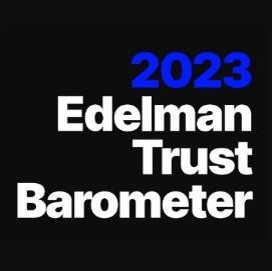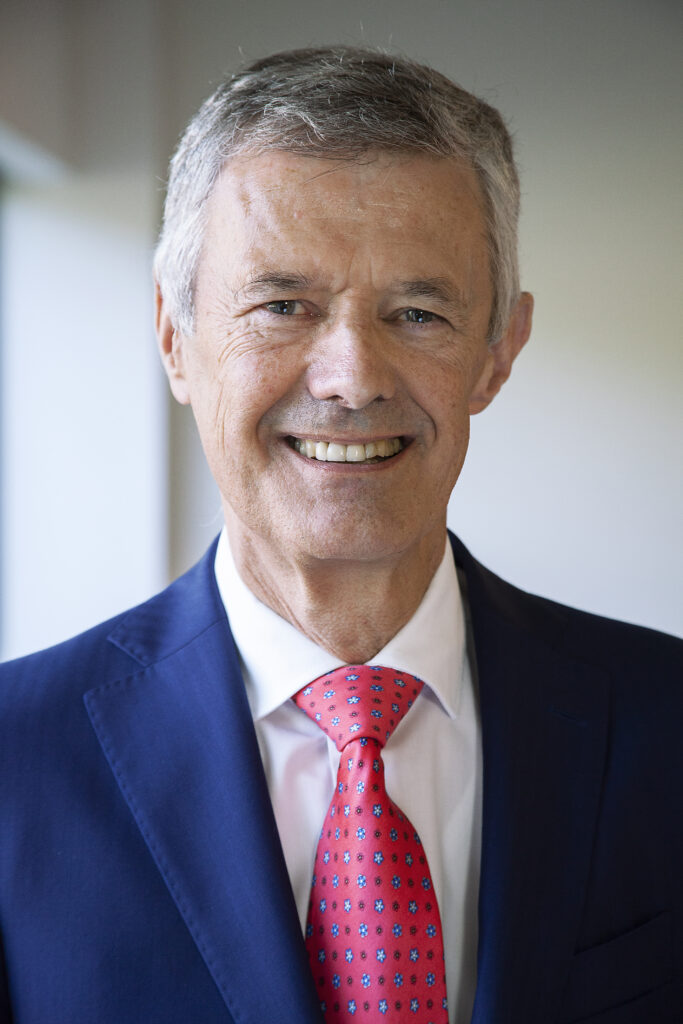In 1927, French writer Julien Benda published The Treason of the Intellectuals. This essay criticized intellectuals for failing to speak out against political tyranny and societal changes for the worse. It urged intellectuals to take responsibility for examining and sharing the truth, making it their duty to speak out against lies and propaganda. Today, Benda’s message is more relevant than ever, as society faces challenges, like climate change and inequality, that require courageous and principled action.
One person who embodies Benda’s call to speak truth to power is Leen Paape, emeritus professor at Nyenrode Business Universiteit. We recently discussed his views on the need for change and the challenges of creating a sustainable future.
No Infinite Growth on a Finite Planet
One of Leen’s main concerns is the impact of human activity on the environment. As he notes, the planet’s resources are rapidly being depleted, and we can no longer afford to continue our current patterns of consumption and waste. He argues that we need to embrace more circular models of production and consumption, but acknowledges that this will be difficult, given our deeply ingrained habits and expectations.
“My daughter says: ‘Your generation has really messed things up, dad!’ We did not do this knowingly, but once you become more knowledgeable about the unintended consequences, you must act.”
He also notes that some people still deny the reality of climate change or the need for urgent action, despite overwhelming evidence to the contrary. Unfortunately, facts alone do not convince people to act. It requires clear framing and relevance to the audience. Some people actually abuse the facts – reframing them to serve their cause. For example, Dutch opinion magazine EW recently celebrated that by 2021, the CO2 emissions in the Netherlands had declined back to the 1964 level. While this is true per capita, due to population growth, the absolute emissions had actually grown by 47%.
“Reframing facts decreases the much-needed sense of urgency. I’m disappointed when the media don’t dig deep enough, opting for a quick soundbite instead. When I spot this, I feel compelled to speak out, to share the data in a way that serves the truth – and the future.”
Societal Change Takes Generations – or a Crisis
Leen Paape acknowledges that changing society is not easy, and that progress is often slow and incremental. He points to the example of the ozone layer, which was severely depleted by the use of chlorofluorocarbons (CFCs) in refrigerants and other products. It took decades of international cooperation to phase out the use of CFCs, but ultimately the problem was solved. However, Leen also notes that the scale and urgency of the climate crisis may require more immediate action. He worries that younger generations – who have a higher sense of urgency – may not have enough time to reach positions of leadership before it is too late to make a difference.
“Crisis is a powerful alternative driver of change. I hope we will not avoid action until we all feel we’re in a crisis, as by then it might be too late. I hope recent droughts in the western world will help to raise awareness of the severity of climate change – and the need to act.”
Acting on the Worst-Case Scenario in the Face of Complexity

The complexity of the climate system and the long feedback loops pose extra challenges. Leen believes that we need to act based on the worst-case scenario, rather than hoping for the best. He notes that most scientists agree that urgent action is needed to avert irreversible climate change, but that short-term interests often trump long-term considerations. He also acknowledges the difficulty of setting clear goals and creating a shared vision of the future, particularly in a political environment where there are many competing interests and priorities.
Setting Goals to Drive Change
Despite these challenges, Leen remains optimistic that change is possible. He points to Donella Meadows, who identified 12 leverage points for intervention, including goal setting. Leen believes that setting clear goals is essential for driving innovation, creativity, and behavior change. He notes that the world has successfully collaborated in the past to achieve shared goals such as reducing the hole in the ozone layer. However, he also acknowledges that setting clear goals requires brave political leadership and a shared vision of the future, which can be difficult to achieve in today’s divided political environment.
Frappez Toujours

As shown by the Edelman Trust Barometer, people are counting on businesses and CEOs to step up on societal issues. Feike Siebesma, the past CEO of DSM, framed it well when he asked, “If you are not contributing to resolving a societal problem, what is your company’s license to operate?” This is the kind of question that needs to be addressed by all companies.
In his various roles, whether it’s during the classes he teaches at Nyenrode, in his non-executive roles at the IMF and several pension funds, or within the council that shapes accountancy education in the Netherlands, he constantly challenges the status quo and pushes for a more sustainable and responsible future.
Even small actions can contribute to tipping points for larger change. Leen mostly does this on LinkedIn, by clarifying issues and facts, raising awareness of opportunities and good news, and challenging people acting on short-term interests for the happy few, rather than the long-term interests of all. Not everyone appreciates his perspective, and he knows his impact might be limited.
“Yet I will continue to swap treason for truth every day and raise my voice for the causes in which I believe.”
To find out more about Leen and the topics on which he’s taking a stand, follow him on LinkedIn or download his farewell speech (in Dutch). Interview by Marjolein Baghuis for the Change in Context blog. To read interviews with other interesting people, book reviews and other posts about change, leadership and sustainability, please subscribe.
Photo credit: Francesco Ungaro

